Philippines Features Nuclear Technologies for Food Security at ADB Forum
- Details
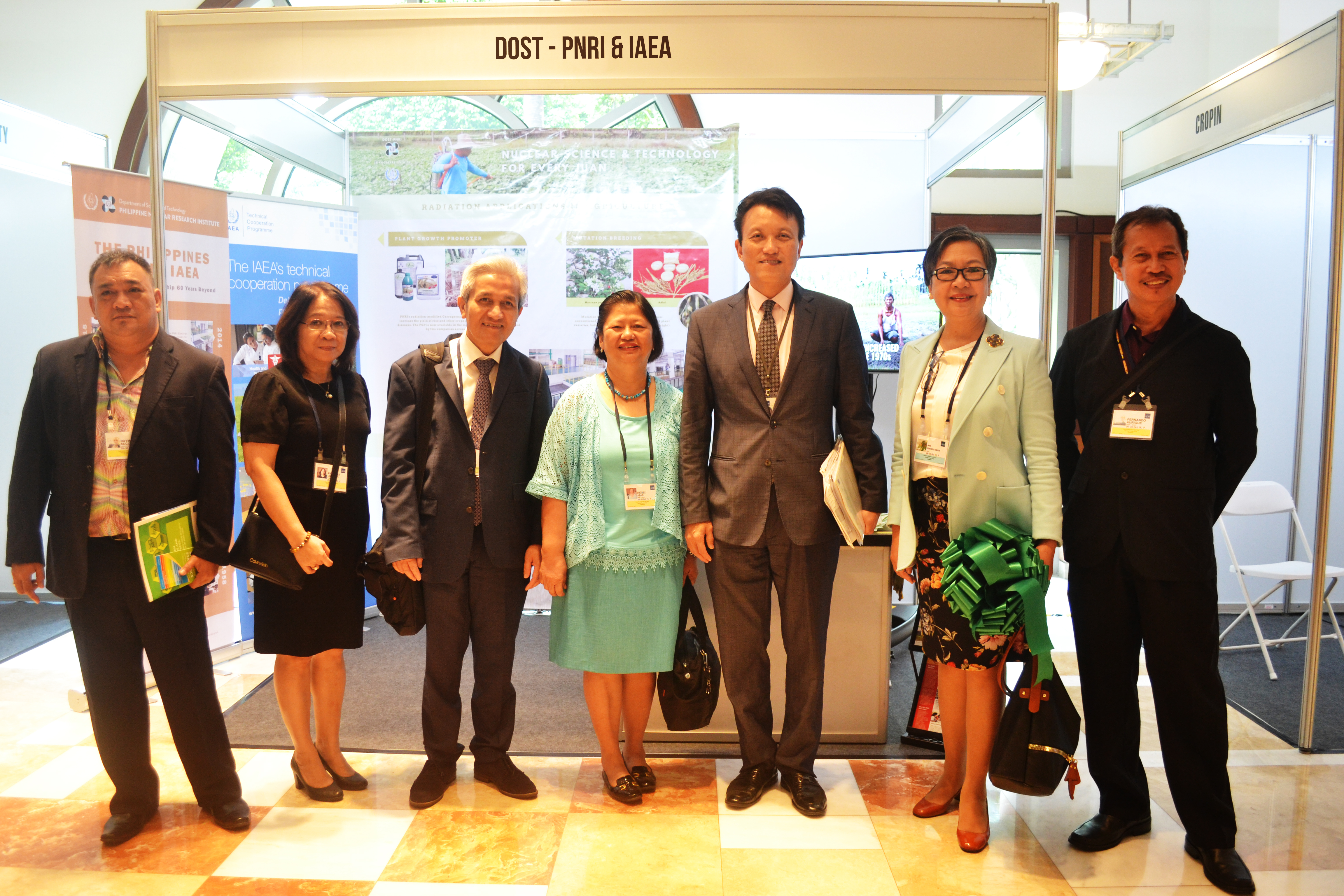
IAEA Director of the Technical Cooperation Division for Asia and the Pacific Dr. Jane Gerardo-Abaya (2nd from right) with officials and scientists from the ADB, IAEA and DOST-PNRI at the opening of the Technology and Innovation Marketplace exhibit area on the first day of the ADB Rural Development and Food Security Forum
Philippines Features Nuclear Technologies for Food Security at ADB Forum
The Philippines recently showcased its innovative nuclear and radiation-based solutions to challenges in food security as well as its contributions to progress in rural communities in the Asia-Pacific region during the Rural Development and Food Security Forum at the Asian Development Bank (ADB) headquarters in Metro Manila, Philippines from October 28 to 30, 2019.
No less than officials from the International Atomic Energy Agency (IAEA) and scientists from the Department of Science and Technology - Philippine Nuclear Research Institute (DOST-PNRI) spearheaded the presentation of nuclear science and technology applications in radiation processing, mutation breeding, food authentication and water resources management.
The DOST-PNRI and IAEA exhibit was part of the Technology and Innovation Marketplace during the forum. Filipino scientist Dr. Jane Gerardo-Abaya, who currently serves as the IAEA Director of the Technical Cooperation Division for Asia and the Pacific, joined the ADB officials for the cutting of the ribbon and official opening of the exhibits.
Among these applications are the Carrageenan Plant Growth Promoter (PGP) formulated to increase the yield of rice crops by more than 20 percent, and make the plants more resistant to blight and infestation.
Born out of the successful IAEA Technical Cooperation Program between the Philippines and the IAEA, the Carrageenan PGP is now available in the market and is already being used by farmers across the country. The technology was presented by PNRI Scientist Dr. Lucille Abad, who heads the institute’s Atomic Research Division.
Other technologies presented are the development of mutant varieties of ornamentals with unique characteristics, as well as staple food crops such as adlai, which may serve as a substitute for rice and corn.
Filipino researchers also featured isotope-based techniques in various fields, from analyzing possible adulteration of vinegar and other condiments used in households, to hydrology and the management of precious groundwater resources.
With more than 250 participants from the government, NGOs and civil society groups, business, academic and research sectors, the ADB forum proved to be an excellent avenue to feature nuclear science as one of the many viable innovations and best practices that can be adopted to ensure food security and prosperity among rural areas in the Asia-Pacific region.
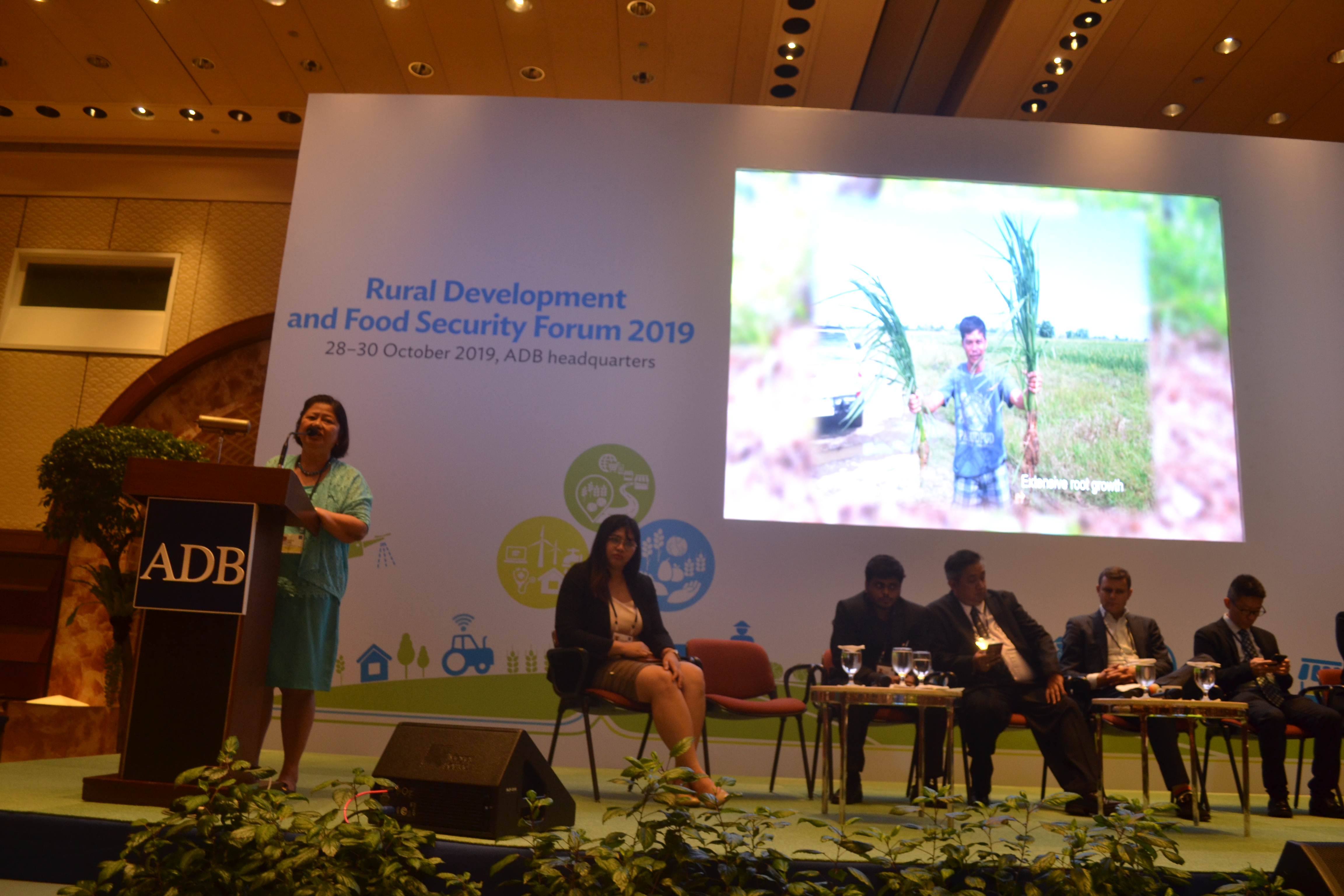
Dr. Lucille Abad, Career Scientist and Atomic Research Division Chief of DOST-PNRI, presents the radiation-processed Carrageenan Plant Growth Promoter on the first day of the ADB Rural Development and Food Security Forum.
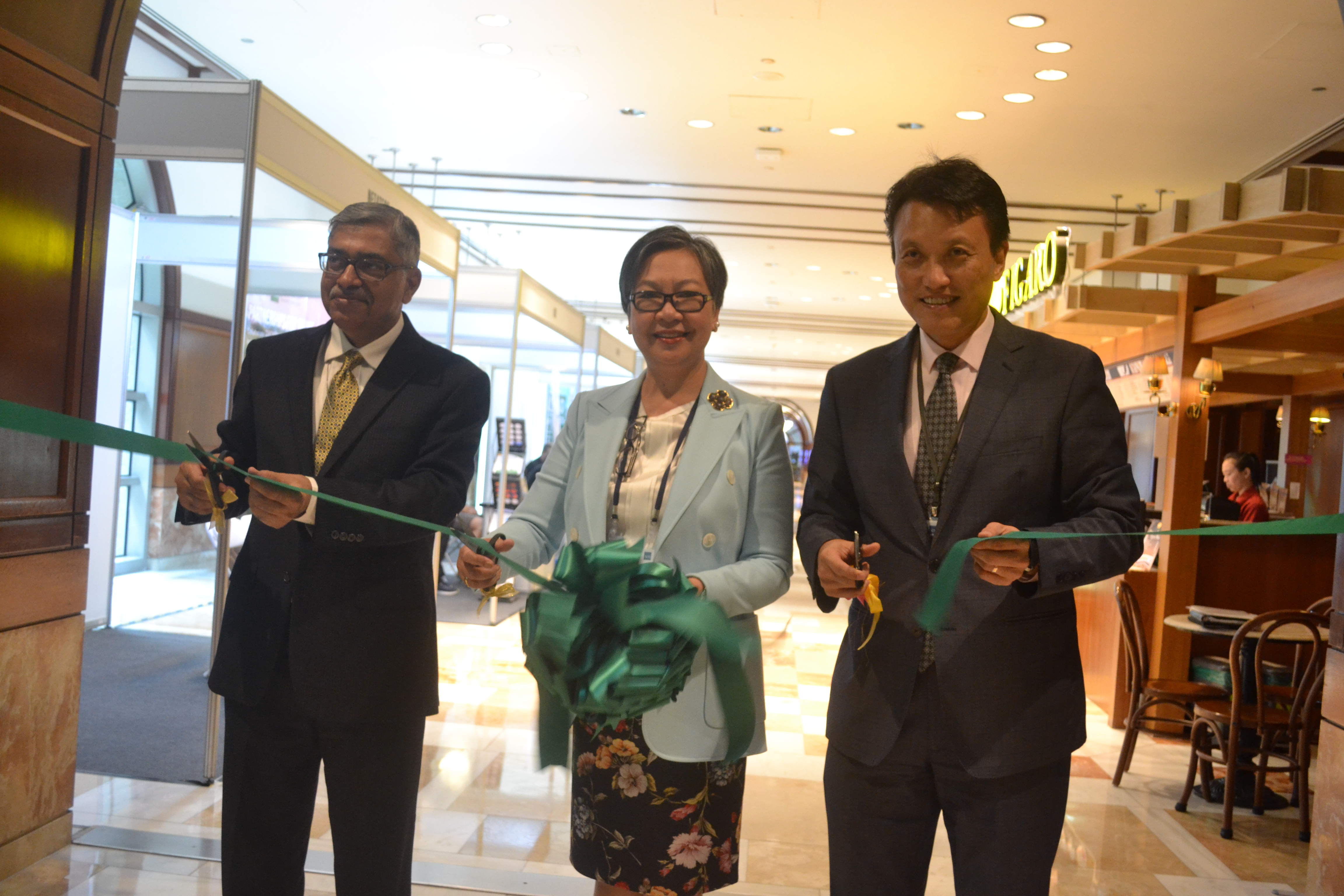
Dr. Jane Gerardo-Abaya, Director of the IAEA Technical Cooperation Division for Asia and the Pacific (middle) joined ADB officials for the cutting of the ribbon and official opening of the Technology and Innovation Marketplace exhibit area.
PNRI Conducts Onsite Training Course on Environmental Radioactivity in Laguna
- Details
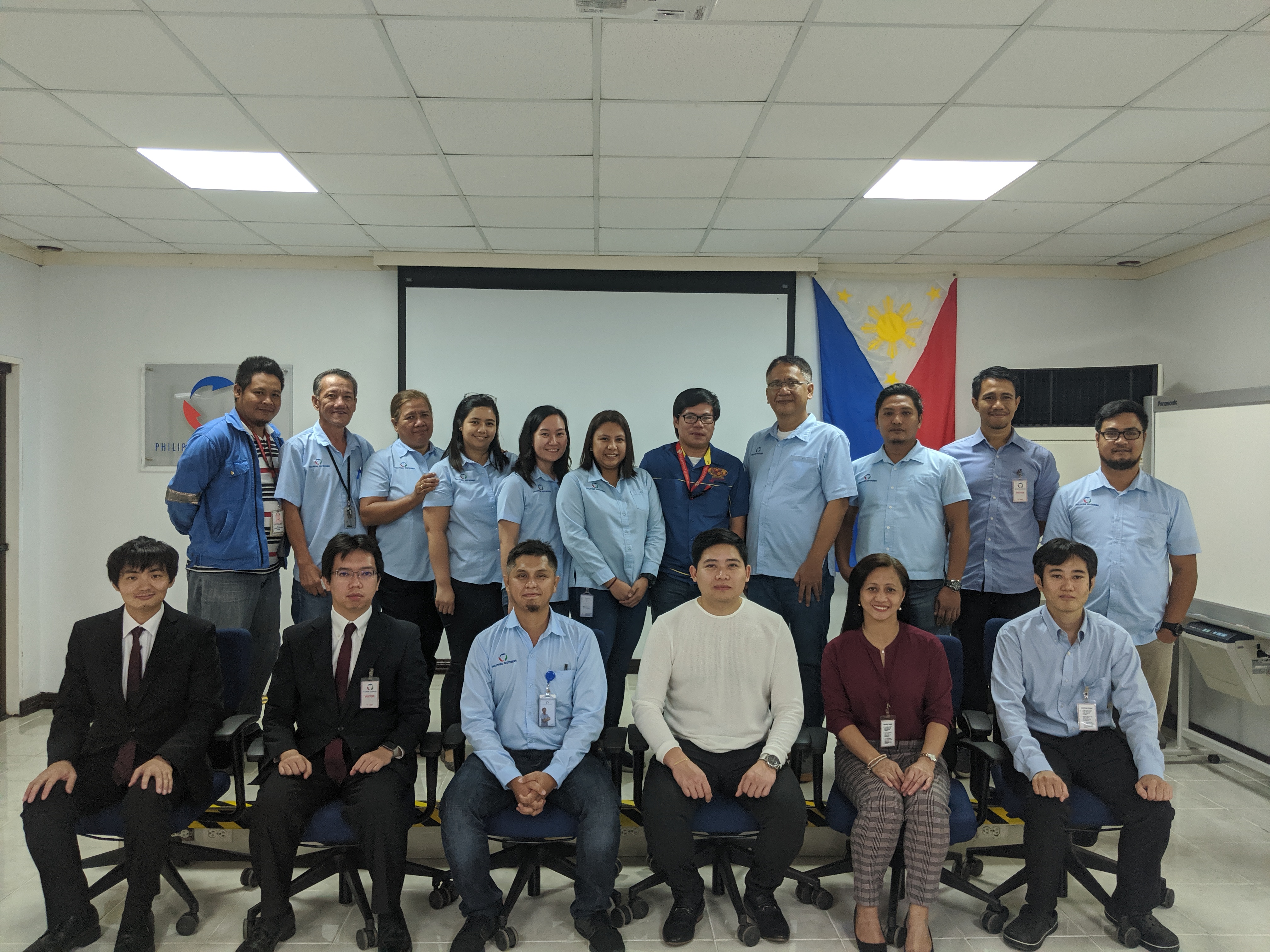
From left to right: Japan Atomic Energy Agency Experts: Dr. Yuki Morishita and Dr. Hiroya Yokoyama, Mr. Jofel Suan of Philippine Geothermal Production Company, Dr. Chitho Feliciano, Head of Health Physics Research Section PNRI, Ms. Rosario Encabo, Training Course Coordinator (PNRI), Dr. Kazuki Iwaoka of the Quantum and Radiological Sciences and Technology and the employees of the Philippine Geothermal Production Company
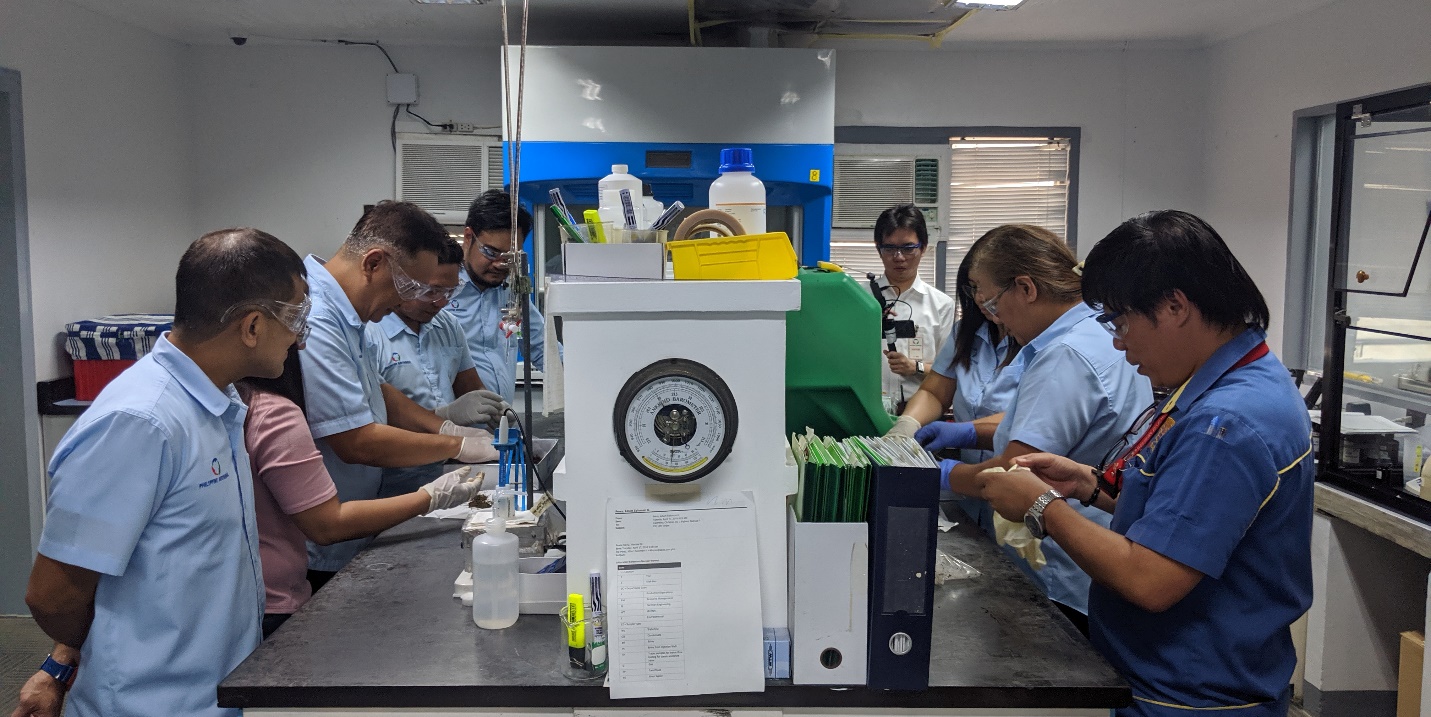
PNRI Conducts Onsite Training Course on Environmental Radioactivity in Laguna
The Department of Science and Technology - Philippine Nuclear Research Institute (DOST-PNRI) in cooperation with the Japan Atomic Energy Agency (JAEA) successfully conducted the 2019 National Workshop on Environmental Radioactivity Monitoring from September 30 to October 04, 2019 at the Philippine Geothermal Production Company (PGPC) Mak-Ban, Bay, Laguna.
The Training Course on Environmental Radioactivity is an annual workshop organized by the Health Physics Research Section (HPRS) of PNRI which aims to provide participants from various backgrounds a working knowledge and practical experience on radioactivity monitoring in the environment.
To better reach its target participants, the training course was conducted onsite in partnership with the PGPC. Thirteen employees of PGPC coming from its two branches (Mak-ban and Tiwi) participated in the training course. The lecturers who imparted invaluable knowledge to the participants include the Japanese experts — Dr. Kazuki Iwaoka from the National Institutes for Quantum and Radiological Sciences and Technology (QST), Dr. Yuki Morishita from JAEA, and Dr. Hiroya Yokoyama, also from JAEA; HPRS environmental radioactivity research experts — Dr. Chitho Feliciano, Ms. Lorna Jean Palad, Ms. Eliza Enriquez, Mr. Ryan Aniago, Mr. Paolo Cruz, Ms. Rosario Encabo (Course Coordinator), and Mr. Juanario Olivarez; and PGPC Mak-Ban Health, Environment, and Security Specialist Ms. Anita Mercado.
In addition to the standard lecture modules and practical exercises on environmental radioactivity monitoring, this year’s workshop featured topics concerning environmental radioactivity in Japan, especially on the current nuclear regulatory status and environmental monitoring strategies eight years after the Fukushima Daiichi Nuclear Power Plant accident, investigations on technologically enhanced naturally-occurring radioactive materials (TENORM) and Japanese products such as rice, and the development of novel radiation detectors, by the Japanese experts, Dr. Kazuki, Dr. Yuki, and Dr. Hiroya. Ms. Anita also gave an overview of geothermal energy and facilitated the discussion concerning its costs, safety, and reliability.
On the last day and closing of the training course, the participants were conferred certificates signifying their successful completion of the workshop. A testimonial was given by the participants and overall, the workshop was very organized, informative, and effective. In the closing remarks by the PGPC Director Mr. Hector Morota, he indicated his interest in conducting similar and advanced training and workshops in collaboration with PNRI in the future.
PNRI GSRGP Grantee Wins 1st Place at ENVIRA 2019 In Czech Republic
- Details
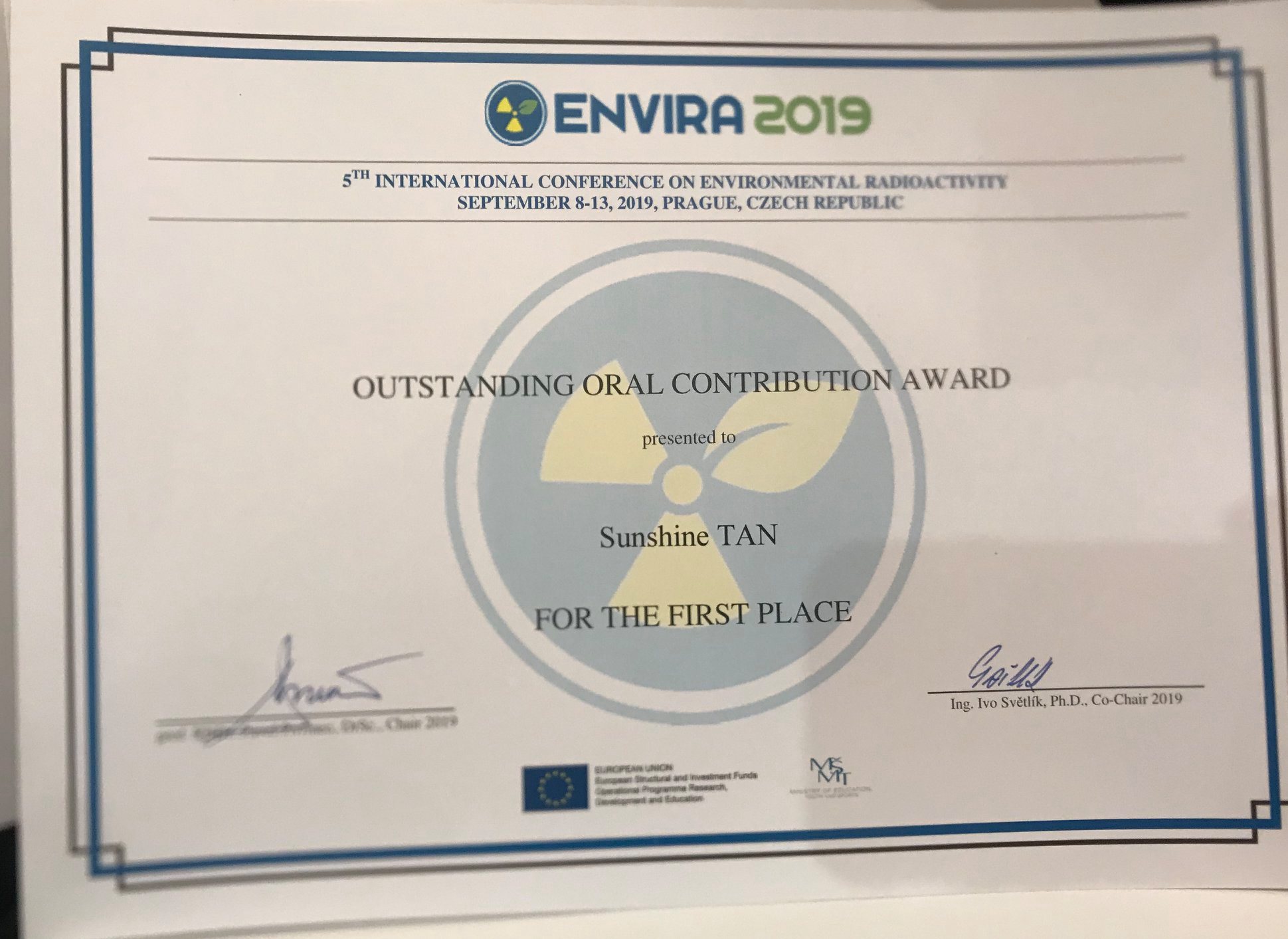
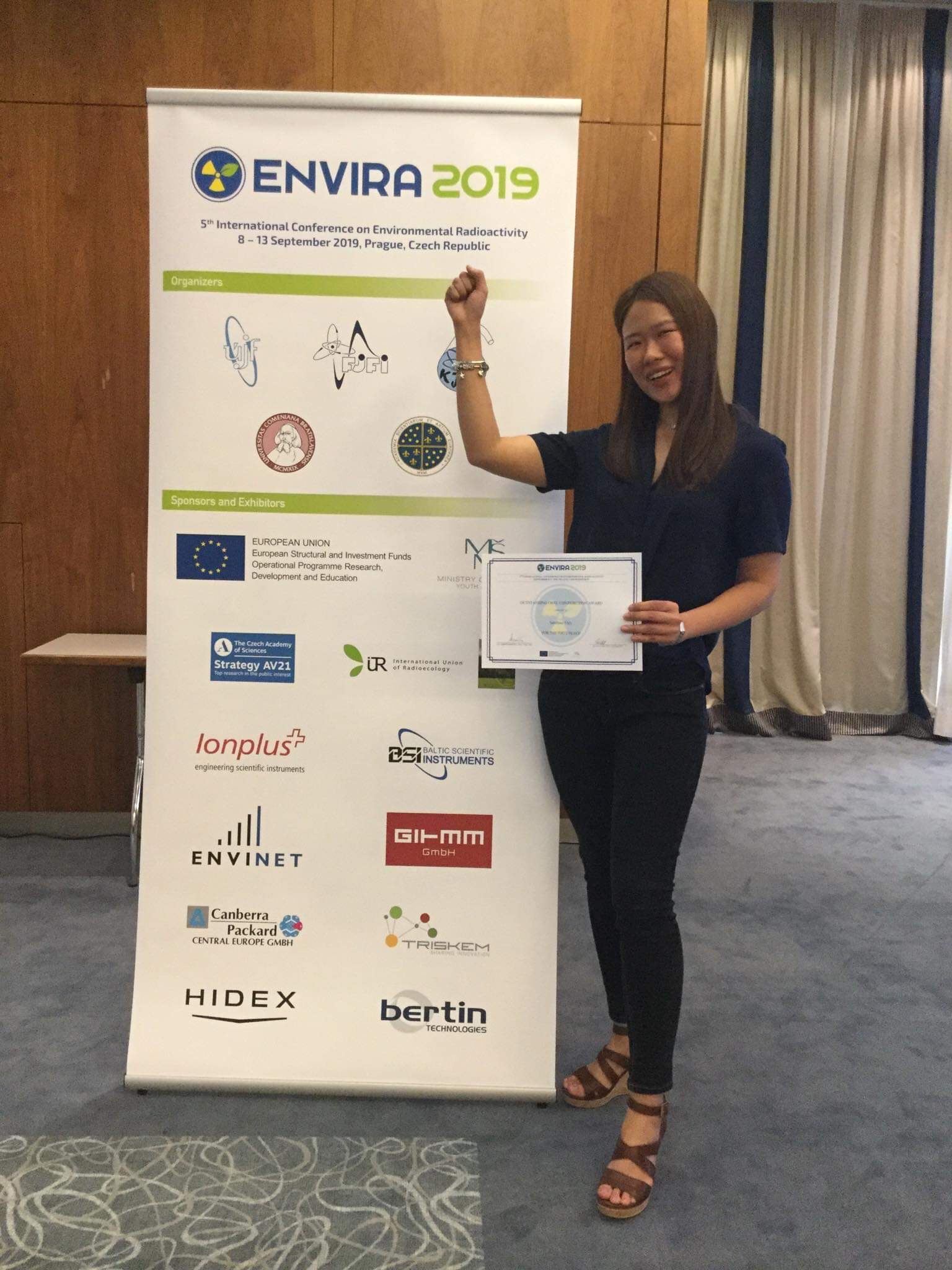
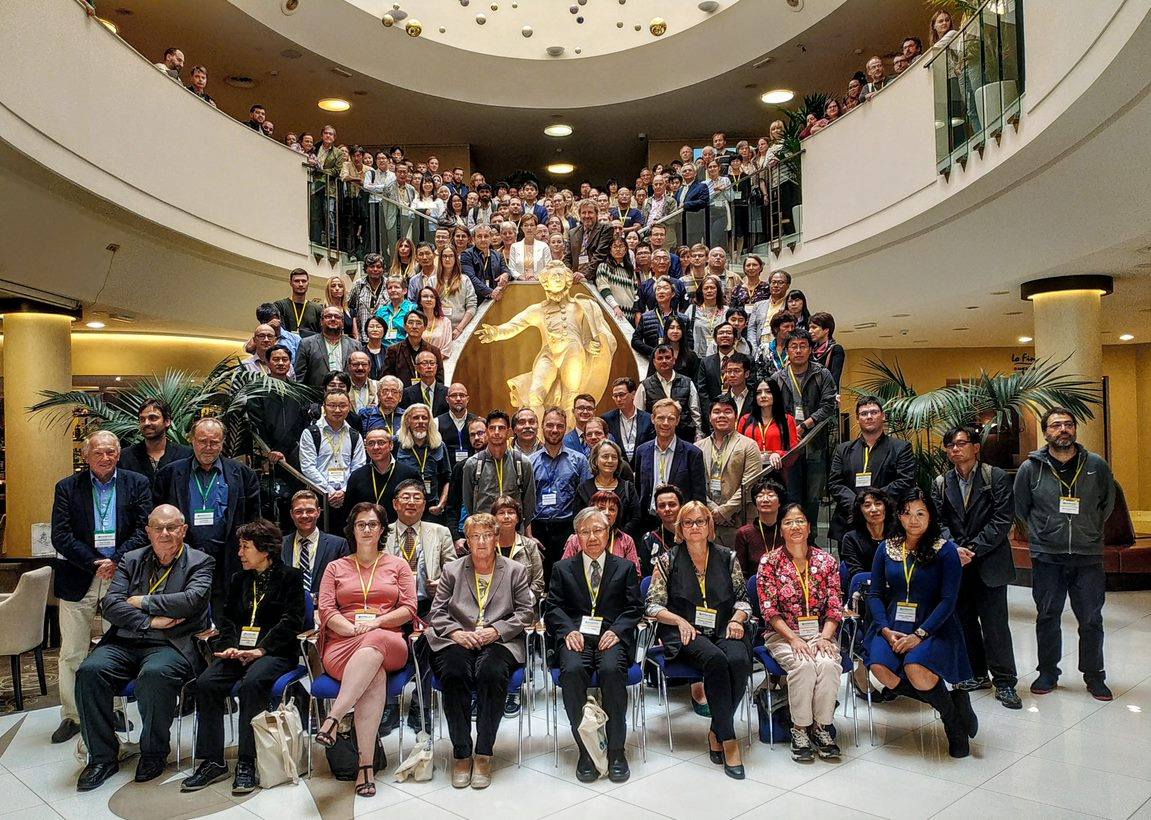
PNRI GSRGP Grantee Wins 1st Place at ENVIRA 2019 In Czech Republic
Congratulations to PNRI Graduate Student Research Grant Program (GSRGP) grantee Dr. Sunshine Tan, for winning the 1st Place for Best Oral Presentation Award at the 2019 International Conference on Environmental Radioactivity (ENVIRA 2019) in Prague, Czech Republic, with participants from 41 countries.
Dr. Tan's dissertation titled "Iodine-129 as an environmental tracer for salinity origin in groundwater in Pampanga, Philippines" was performed in part at the DOST - Philippine Nuclear Research Institute, under the mentorship of Dr. Angel Bautista VII of the Nuclear Analytical Techniques Applications Section.
The PNRI GSRGP is a research grant program implemented by PNRI and funded by the Philippine Council for Industry, Energy and Emerging Technology Research and Development (PCIEERD).
NUCLEAR SCIENCE FOR EVERY JUAN: PNRI at the 63rd IAEA General Conference
- Details
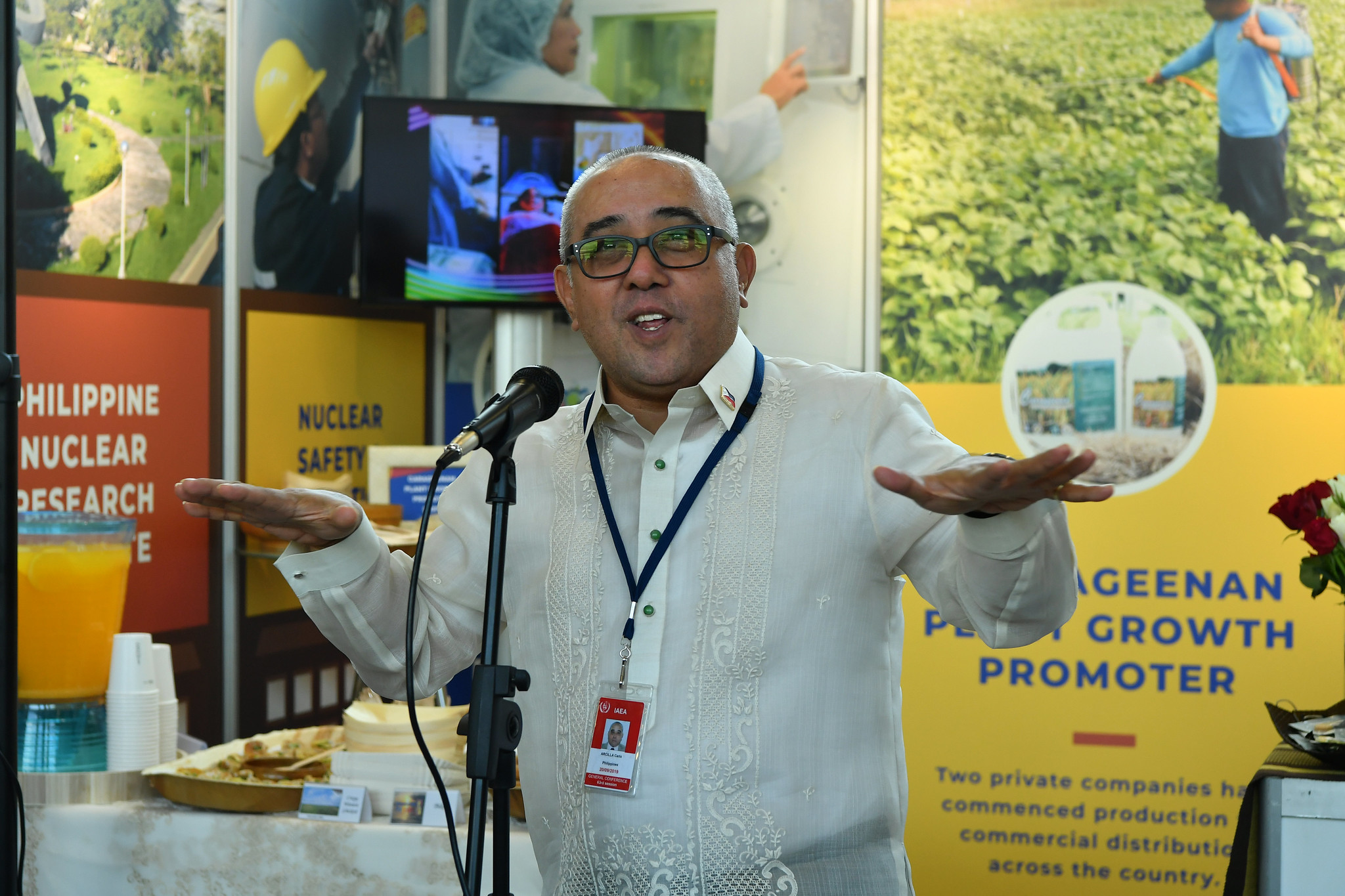
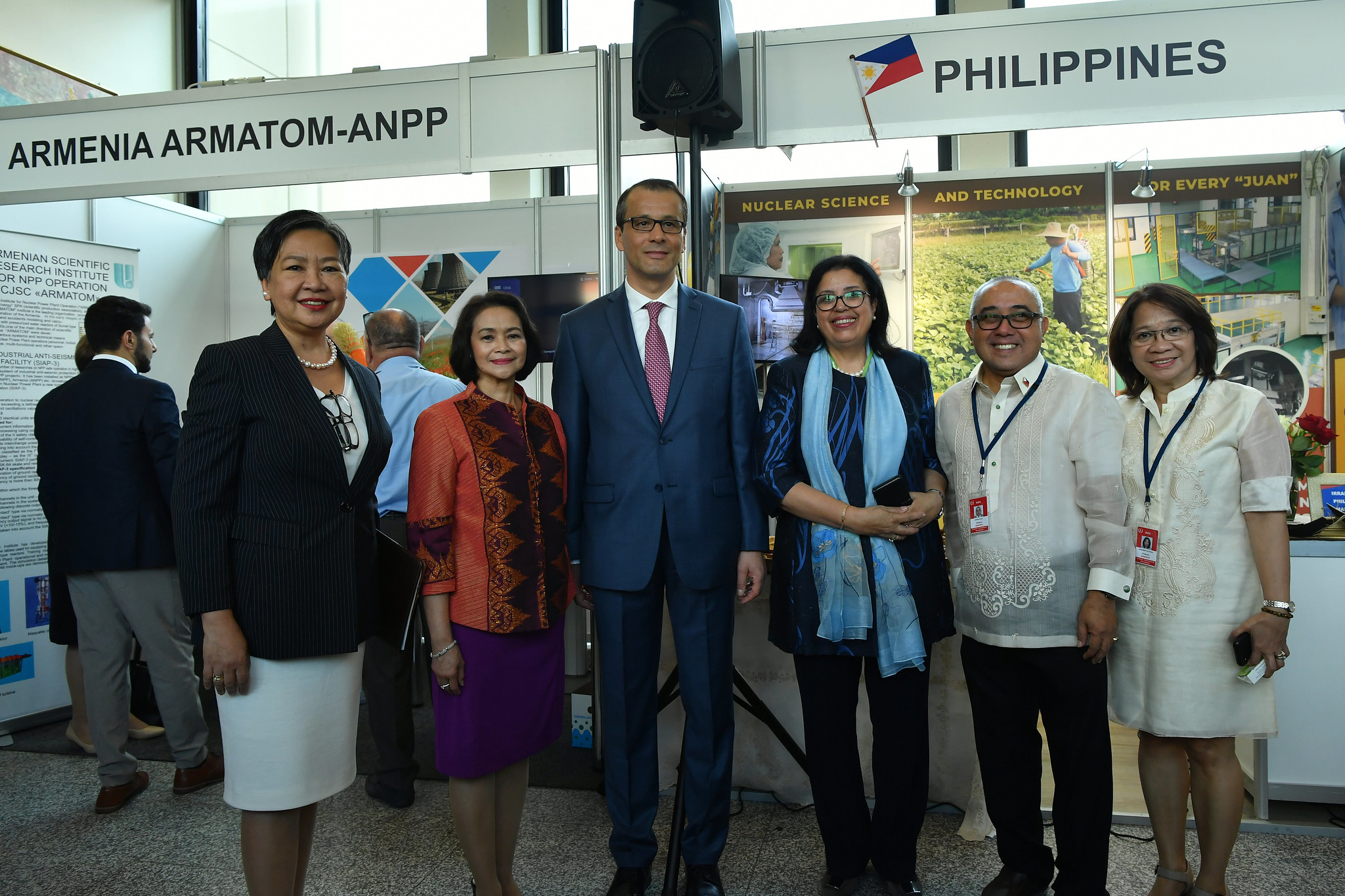
Photos by Dean Calma of IAEA and by PNRI staff
NUCLEAR SCIENCE FOR EVERY JUAN: The Philippines at the 63rd IAEA General Conference
Showcasing the best and latest among Filipino applications of nuclear science and technology, the Department of Science and Technology - Philippine Nuclear Research Institute (DOST-PNRI) joined the Philippine delegation during the 63rd General Conference of the International Atomic Energy Agency (IAEA) from September 16-20, 2019 in Vienna, Austria.
The delegation launched the country's exhibit entitled "Nuclear Science and Technology for Every Juan" at the Vienna International Center on September 16, with IAEA officials and delegates from other Member States in attendance.
Among the visiting officials to the Philippines' exhibit are IAEA Acting Director General Mr. Cornel Feruta, Deputy Directors General Ms. Najat Mokhtar and Mr. Dazhu Yang, and Filipino scientist Ms. Jane Gerardo-Abaya, who currently serves as the IAEA Director of the Technical Cooperation Division for Asia and the Pacific.
The visitors were welcomed by PNRI Director Dr. Carlo Arcilla and Ambassador Maria Cleofe Natividad, who is the Philippines' ambassador to Austria and the Permanent Representative of the Philippines to the IAEA. IAEA Acting DG Feruta also addressed the visitors during the launching of the exhibit, and was presented with Philippine mangoes by Dr. Arcilla and Ambassador Natividad.
The international crowd literally had a taste of Filipino hospitality as they were served with local food, delicacies and desserts during the exhibit launching.
The Philippines has been a Member State of the IAEA since 1958, and has since enjoyed a strong partnership with the Agency in spearheading the benefits of Atoms for Peace and Development in the country.












































